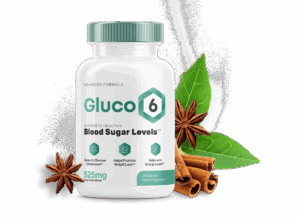Diet Benefits and Meal Plans
Adopting a plant-based diet can transform your health, outlook, and even your environment. By focusing on plant-derived ingredients, we can enhance our nutrition, reduce the risk of chronic diseases, and align with more sustainable living practices. Whether for ethical, environmental, or health reasons, the plant-based approach offers diverse benefits and culinary delights. This article delves into the many advantages of a plant-based lifestyle and provides practical meal plans to enrich your daily diet.
Understanding the Benefits of a Plant-Based Diet
Adopting a plant-based diet offers an array of advantages that extend beyond just personal health. These benefits touch upon environmental sustainability and ethical considerations, crafting an all-encompassing approach to nourishment. Delving into the health benefits, the nutrients obtained from plants, such as fiber, vitamins, and antioxidants, play a crucial role in combating chronic diseases. Studies demonstrate that a plant-rich diet can lower the risk of heart disease by improving cholesterol levels and reducing inflammation.
Diabetes prevention is another domain where plant-based nutrition shines. High fiber content in fruits, vegetables, and whole grains moderates blood sugar by slowing digestion and minimizing those sharp spikes in glucose. Moreover, plant-based eaters often have a lower body mass index (BMI), aiding in weight management, which is a significant factor in preventing obesity-related conditions. Balanced Nutrition for Optimal Health can provide further guidance on achieving these health benefits.
On the environmental front, plant-based diets are acclaimed for their sustainability. The agricultural requirement to produce plant-based foods is notably lower than their animal-based counterparts. By choosing plants over meat, the consumption of water, land, and energy resources lessens significantly. This reduction helps combat climate change by decreasing greenhouse gas emissions, making each meal an opportunity to contribute positively to the planet’s health.
Ethically, the switch to plant-based eating can reflect a more humane approach to sourcing our sustenance. Many opt for this diet to stand against the often inhumane conditions in animal farming. Making ethical food choices by supporting local and organic plant farmers can lead to a demand for more sustainable and humane practices across the board.
By embracing a plant-based lifestyle, we embrace a model that is not only health-beneficial but also considers the well-being of our environment and fellow creatures. As you explore this dietary path, remember the interconnectedness of these benefits—it’s about making decisions today that nurture future generations.
Crafting a Balanced Plant-Based Meal Plan
Creating a balanced plant-based meal plan involves understanding the essential nutrients needed for optimal health. Here’s how to ensure your meals are both satisfying and nutritious.
1. Protein Power: Don’t worry about missing out on protein. Incorporate sources like tofu, tempeh, chickpeas, and lentils. Quinoa and nuts can also give an extra protein boost. Try a simple breakfast of a chickpea scramble with spinach and tomatoes or a quinoa salad packed with veggies for lunch.
2. Iron Intake: Plant-based diets can provide ample iron if planned well. Pair iron-rich foods such as beans, lentils, and spinach with vitamin C sources like bell peppers or citrus fruits to enhance absorption. Consider a dinner of lentil stew with kale and a side salad topped with orange slices.
3. Omega-3 Fatty Acids: Opt for flaxseeds, chia seeds, and walnuts to meet your omega-3 needs. Add ground flaxseed to your morning oatmeal or a spoonful of chia seeds to smoothies. For snacks, a handful of walnuts can be both satisfying and nourishing. For more healthy snack ideas, explore our recommendations.
4. Breakfast: Start your day with oats or smoothies. Overnight oats with almond milk, topped with berries and a sprinkle of flaxseed, offer a nutritious start. A green smoothie with kale, banana, and chia seeds is another excellent choice.
5. Lunch: Build a hearty salad with mixed greens, roasted chickpeas, avocado, and a lemon-tahini dressing. Or, try a whole-grain wrap filled with hummus, sliced veggies, and sprouts. These options are sustaining without being heavy.
6. Dinner: Opt for a quinoa-stuffed bell pepper or a vegetable stir-fry with tofu and brown rice. Both dishes are rich in flavors and nutrients essential for a balanced diet.
7. Snacks: Keep it simple with fruit, nuts, or energy balls made from dates and nuts. Preparing snacks in advance can help maintain your nutritional momentum throughout the day.
By being mindful of these nutrient sources, you can create meals that not only taste great but support your health in the long run.
Gluco6 Product
Overcoming Challenges of a Plant-Based Lifestyle
Adopting a plant-based diet often comes with challenges. Common hurdles include perceived limited food choices and social dining pressures. These can be daunting, but with the right strategies, you can conquer them seamlessly.
Meal prepping is a practical solution. By preparing meals in advance, you eliminate the daily decision of what to eat. This helps you avoid resorting to less healthy options. Storing portioned meals in advance also saves time and ensures that you always have a nutritious option on hand. Check out our healthy meal prep ideas for busy professionals for inspiration.
Seeking community support is another powerful strategy. Joining plant-based diet communities, both online and offline, offers you a network of support. These groups often share recipes, tips, and encouragement. You’ll find that many have faced similar challenges and can provide valuable advice. Engaging in forums or social media groups allows for the exchange of ideas and solutions.
Finding plant-based alternatives can also ease the transition. Today, many retailers offer a wide array of plant-based substitutes for meat, dairy, and other non-vegan products. Experiment with different brands and products to find the ones you enjoy. Many individuals find that variety increases their satisfaction and commitment to a plant-based lifestyle.
Consider Sara’s journey: “Initially, family gatherings were tough. Everyone questioned my choice, limiting my enthusiasm. But, I started meal prepping and gradually exposed my family to delicious plant-based recipes. Now, they even ask me for tips!” Her story illustrates the power of preparation and persistence.
John’s experience is similar: “Eating out was a nightmare at first. But then I found a local vegan group. We mapped out vegan-friendly restaurants, making dining out enjoyable again.” Community connections led John to discover new places and form new relationships, reducing social dining pressure.
Everyone’s journey to plant-based eating is unique, but these strategies provide effective foundations for overcoming obstacles. With a well-prepared approach, and support from a community, the path to health and harmony becomes more accessible and rewarding.
Nutritional Considerations and Supplements
Embracing a plant-based diet can lead to significant health benefits, but it’s vital to remain mindful of certain nutritional considerations. Among the most crucial nutrients to monitor are vitamin B12, vitamin D, and iodine. Each plays a pivotal role in maintaining optimal health, and understanding how to incorporate them effectively into a plant-based regimen is essential.
Vitamin B12 is frequently discussed in the context of plant-based diets. Primarily found in animal products, this vitamin is crucial for nerve and blood cell health. Those on plant-based diets should look for fortified foods like plant milks or breakfast cereals or consider taking a dedicated B12 supplement to ensure adequate intake.
Next, vitamin D is essential for bone health and immune function. Naturally, our bodies produce vitamin D when exposed to sunlight, but this can be insufficient depending on geographic location and lifestyle factors. Fortified foods like orange juice or taking a vitamin D supplement can help bridge any gaps.
Iodine is vital for thyroid function and is often found in iodized salt and seaweed. However, it’s important not to overconsume iodine-rich foods, as too much can also harm the thyroid. Balancing natural sources with mindful usage of iodized salt can maintain appropriate iodine levels.
In addition to these key nutrients, some may wonder about the utility of other supplements. While obtaining vitamins and minerals from whole foods is ideal, supplements can be beneficial when dietary intake is insufficient. For instance, those struggling to meet their iron or calcium needs through diet alone might benefit from supplements.
Finally, consider when supplementation is necessary. Regular blood tests can help determine deficiencies, guiding whether a supplement is needed. Moreover, consulting with a healthcare professional ensures personalized guidance based on individual needs and health goals.
Further details on balancing nutrition for optimal health, including other essential vitamins and minerals, can be found in this comprehensive guide. Practicing mindful supplementation ensures you reap the benefits of a plant-based diet while avoiding potential pitfalls.
Final words Diet Benefits and Meal Plans
Embracing a plant-based diet is more than just a change in eating habits; it’s a shift towards a more conscious and health-oriented lifestyle. Whether your goal is to improve overall health, support the environment, or align with ethical choices, plant-based eating offers plentiful benefits. Remember, small changes can lead to profound impacts. I hope you’ll continue exploring the variety of plant-based foods and the benefits they bring by visiting our website regularly for more insights.




